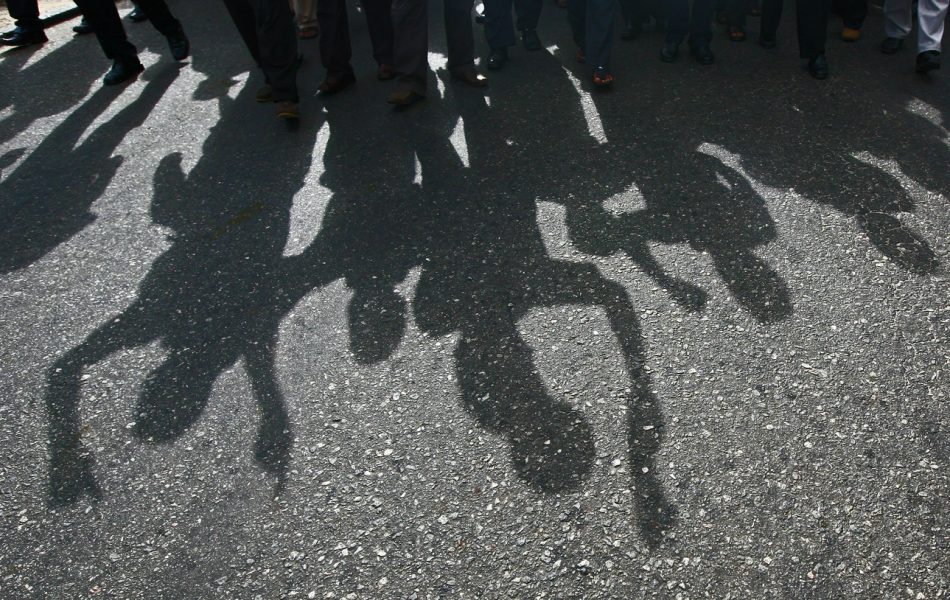
Sivaganga murders: Verdict no solace for Dalits; 15 families have left village in 4 years
Even though a special court has sentenced 27 caste Hindus to life imprisonment for the murder of three Dalit men in Katchanatham village of Sivagangai district in 2018, villagers say it cannot return to them what they lost in the violence and its aftermath

A special court in Tamil Nadu recently convicted and, on Friday (August 5), sentenced 27 caste Hindus to life imprisonment for the murder of three Dalit men in Katchanatham village of Sivagangai district in 2018. While the verdict is now in, the caste clash has left a permanent scar on the villagers, forcing at least 15 families to vacate the place.
“The conviction is a welcome move, but nobody can give us back what we lost during the caste clash and in its aftermath. At least 15 families, all having educated youths, have left the village to raise their children in a peaceful environment, away from violence,” A Sukumar, whose right hand was paralysed after sustaining grievous injury during the caste clash in 2018, told The Federal.
Survivors take refuge in law degree
Sukumar’s father Dhanasekhar, who was grievously injured in the clash, died after a year of treatment. Sukumar, who was pursuing MSc at that time, decided to study law in 2019, after he saw his family and fellow villagers being targeted by the caste Hindus in the locality.
“Most of the residents in our village are educated and almost everyone owns farm land. A relative of mine in the village, who had a law degree, became an IRS officer and, until he was alive, there was no threat to us. Soon after he died in 2012, the caste Hindus in and around our village started to threaten, dominate and discriminate against us in one way or the other,” recounted Sukumar.
Also read: Sivaganga murder: 27 found guilty of killing three SC members
“We kept complaining to the police, but no action was taken. Had they taken action, the clash leading to the murder of three of our villagers and relatives might not have happened. I felt that only because there was no law graduate in the village to seek legal support and protection, the incident came to pass. And that’s when I decided to pursue law and now I am a law graduate,” Sukumar says.
Sukumar also persuaded his sister Sangeetha to pursue law and now the two are the only law graduates in the village.
What sparked the violence?
According to locals, there were around 38 families in Katchanatham village, of which 37 were Dalit families. Only one family belonged to the Mukkulathor or Thevar community, a caste Hindu clan.
“Although there were frequent fissures, the trouble started brewing only after they began demanding mudhal mariyadhai (a system of according ‘prime honour’ to important people after temple festivities, which often includes the first darshan, first offering of prashad, a silk turban, garland, and so on) at the Karupanna Swamy temple of our village. They had not even entered our temple to offer prayers or worship, but they had no qualms about demanding mudhal mariyadhai. But no such tradition was being followed in the temple,” said Azhagu, a farmer and a relative of Shanmuganathan, who was killed in the clash.
On May 28, 2018, three Dalit men – A Arumugam (60), A Shanmuganathan (31) and Chandrasekar (45) were killed – while several others were grievously injured after a group of caste Hindus attacked Dalits in Katchanatham and vandalised their settlement.
The clash erupted allegedly after the Dalits filed a complaint against a caste Hindu man who had earlier threatened the villagers over bestowing of temple honours in the village.
Even as the police were investigating the complaint filed by the Dalits, a group of caste Hindus vandalised the village and attacked residents, killing Arumugam, Shamuganathan and Chandrasekar.
“They could not tolerate us being independent. Mostly, Dalits in the neighbouring villages work in the farms of caste Hindus or they would be dependent on them in one way or the other. But, because of the educated elders in our village, all of us grew up to be educated and independent,” shared Azhagu.
In search of a safer life
Azhagu, who was residing in the village until 2018, left the place after the clashes and now lives at Manamadurai, around 20 km from Katchanatham. “I have a farm in my native place and I visit it whenever needed. I did not want to stay there permanently. We do not want to lose our next generations to violence,” he said.
Another villager, Marudhupandiyan, who is a government driver, said that the people who were killed in the clash played an important role in the development of the village.
Also read: How female deities helped foster caste violence in TN
“Shanmuganathan was an MBA graduate and despite getting a good salary in Chennai, he came back to the village to support the youngsters here. His parents were school teachers in the village. Arumugam’s son is working in the Army and he encouraged youngsters here to prepare for defence jobs and, in fact, a couple of youngsters got inspired and joined the Army because of him,” Maruthupandiyan told The Federal.
In the caste clash, a Special Court on Monday convicted the 27 accused guilty of various crimes under Section 302 (punishment for murder) and other sections of the SC/ST Act. On Friday, the special court sentenced all the 27 convicts to life imprisonment for different charges concurrently. The judgment has come as a solace for the villagers who are yet to recover from the gruesome episode.


